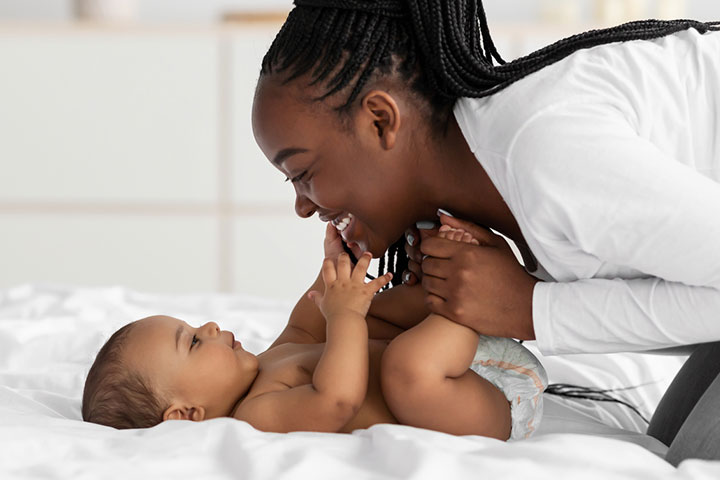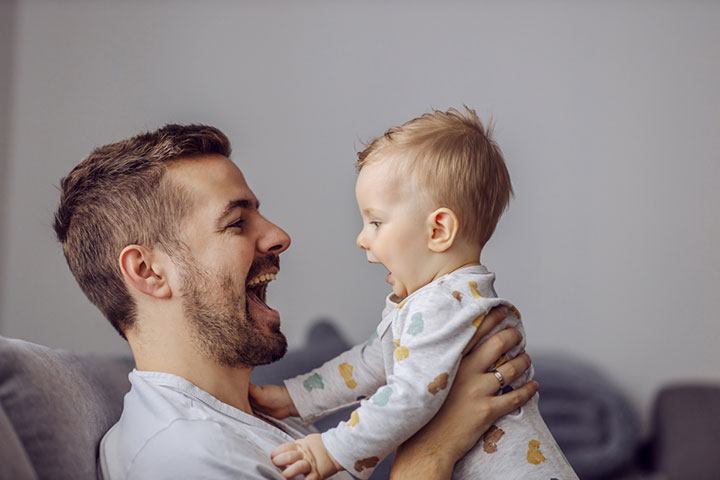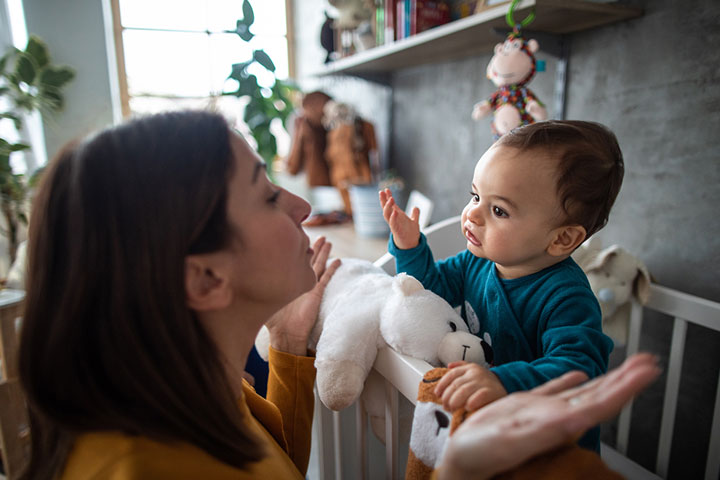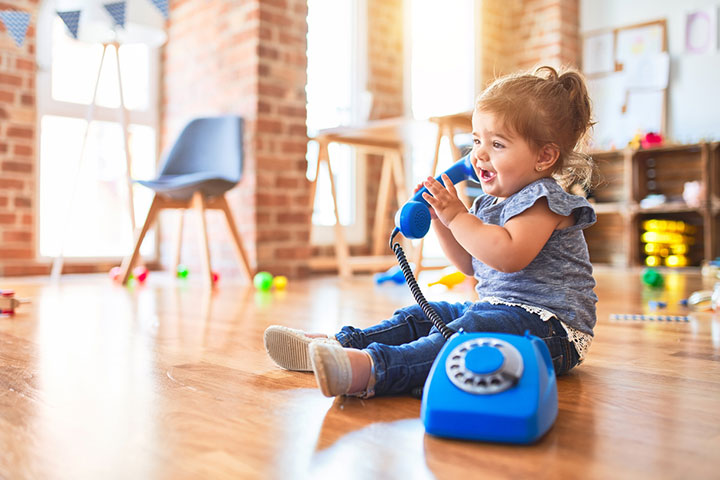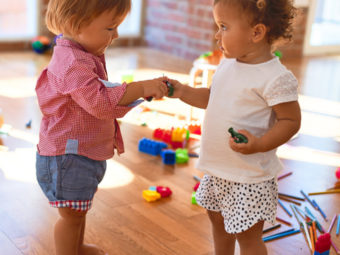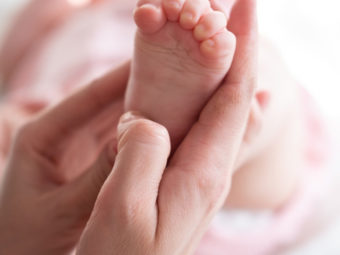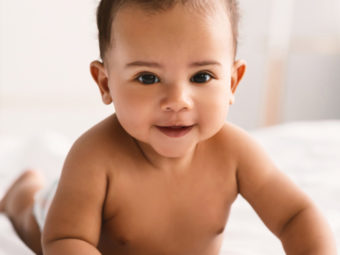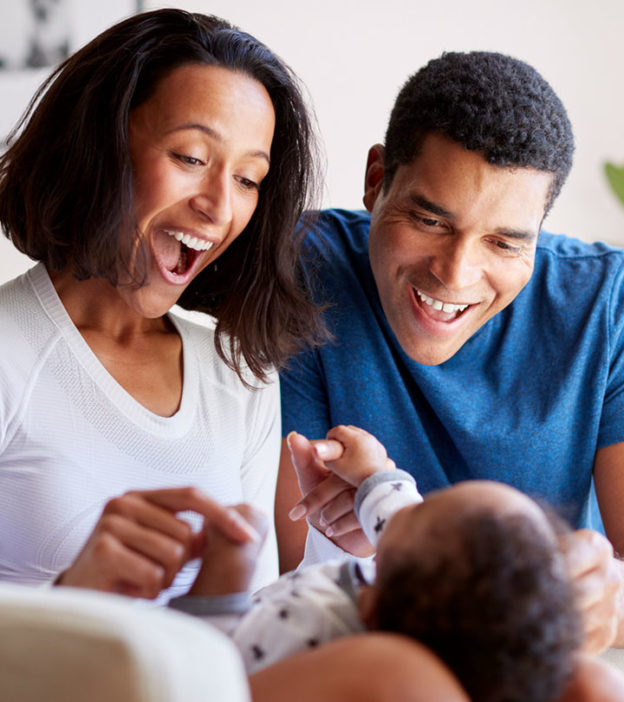
Image: iStock
There’s nothing quite like hearing your baby talk for the first time. It lights up the faces of parents and they are elated when their baby finally calls them mama or dada but your baby goes through a long journey to get to this point. Your little one has to develop their speech skills in phases, month after month. So if you want a timeline of what your baby should be able to say or how their speech progresses during their formative years, then this is the article for you. Keep on reading! Here is a baby talking timeline to keep track of your baby’s speech development.
1. Birth To 6 Months
Your baby has been listening to you since day one. Babies often start to recognize the voice of their mothers while they are still in the womb. So they learn to associate sounds with different sources. When they have arrived they soon figure out that the family dog barks and that dad’s voice is deeper than mom’s. Your baby’s first mode of communication is crying. They cry when they are hungry, in need of a diaper change, sleepy or in distress. But soon enough they will start to make a few sounds that they hear often. They soon start using their tongue, lips, and palate to make gurgles and long vowel sounds like “oo,” “aa,” and “ee” which are all precursors to their exciting first words. Keep in mind that babies as young as 4 weeks old can distinguish between similar syllables like “ma” and “na.” And around 2 months, they can even begin associating certain sounds with certain lip movements (1). How incredible is that!
2. 4 Months To 6 Months
This is a fun period for babies and their parents as your baby’s sight will give way to a lot of babbling. You’ll hear them make all kinds of sounds like the back of the tongue consonant sounds such as “g” and “k” and some interesting lip sounds like “m”, “w”, “p” and “b”. This is also the time when your baby will start to focus particularly on familiar words that they hear often like their own name or the words “mommy” and “daddy”. They even use them as clues to break up a sentence. However, it’s important to keep in mind that around the 4-month mark your baby will only recognize their name as an important word like “Hi” and “Bye”. It is just something that is familiar to them. It isn’t until they reach 6 months that they realize that the name actually refers to them (2).
3. 7 To 12 Months
This is the period when your child’s babbling will finally start to turn into actual words. They will intentionally start to repeat sounds over and over again simply because they find it fascinating. They usually pick sounds that are easy to imitate like “gaga”. At about 9 months they’ll start to understand why gestures are used (2). They will even start to point and grunt to indicate their wants. At about 10 months, they’ll gain more control and combine sounds, even using their own invented words. Babies usually say their first word around the 12-month mark according to experts (3). They can also start to say common greetings like “hello”, “hi” and “bye” or may stick to concrete words like “mama” and “dada”. They may even start to recognize the family animals calling them “doggy” and “kitty” and can name foods that they particularly like, for example, “cookies”, “milk” or “juice”. Your baby, at this stage, is starting to slowly recognize and comprehend a few familiar words, such as names and everyday objects like “bottle” or “crib.” They will also start to hone in on intonation and recognize that a sharp tone means “no” or “stop” (4).
4. 13 To 18 Months
As soon as your baby starts to say that first word, they will try to say more. Their vocabulary builds slowly at first with just a few words per month but they will soon start to catch on. Children seem to prefer nouns, then gradually add verbs and adjectives to their dictionary. And soon just saying “cookie?” will expand to “May I have a cookie?”. They will also start to learn how fun it is to say “no” much to the dismay of their parents. They will start to grasp one step instructions like “put down the ball” or “Don’t throw the food on the ground”.
Listening to your baby start to speak and express themselves can be a very rewarding and fascinating thing for parents to be a part of. This is when their personality starts to come through and you get to know your child. Now that you know the long road your baby takes to these important milestones, you’ll learn to look out for them!

